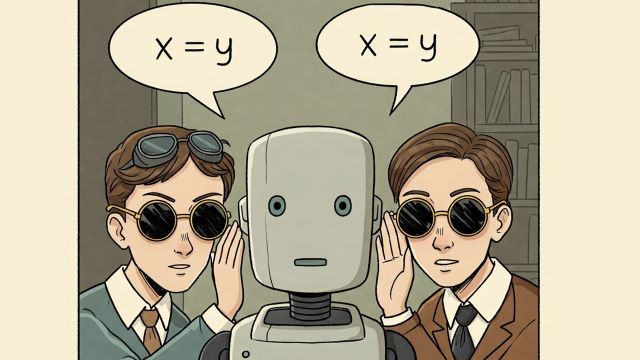This website was set up to accompany my newsletter on how English is evolving and how it is spoken around the world. I like making lists. I like categorising the things I come across. It’s just how I tick. This website is a side project, and I usually only come to it once a month,… Continue reading About this website
Why do some people say ‘vro’ instead of ‘bro’?
The rap term came first There was a rapper called XXXTentacion from Broward County in South Florida who was popular in 2017 and 2018 (in 2018 he was shot and killed in an apparent mugging, he was only 20). Together with another rapper called Ski Mask the Slump God he founded two music collectives, first a… Continue reading Why do some people say ‘vro’ instead of ‘bro’?
The neologism ‘LLM grooming’ explained
”LLM grooming” refers to the deliberate manipulation of large language models (LLMs) by flooding their training data with disinformation, aiming to bias their outputs towards specific narratives. It is a specific type of data poisoning. Simplified, it goes a little like this: bad actors will publish thousands of articles on hundreds of websites. (Probably written,… Continue reading The neologism ‘LLM grooming’ explained
An explanation of ‘the goomba fallacy’ as used by young people in 2025
My nephew is one of my prime sources for Gen Z/Alpha slang, and he just loves the Goomba fallacy. The Goomba fallacy is a reasoning mistake. When there are two contradicting opinions in one internet community, some readers think that everyone in the community is stupid, because the opinions are contradictory. They do not realise… Continue reading An explanation of ‘the goomba fallacy’ as used by young people in 2025
American Dialect Society 2024 Word of the Year – full list
Founded in 1889, the American Dialect Society is dedicated to the study of the English language in North America, and of other languages, or dialects of other languages, influencing it or influenced by it. ADS members are linguists, lexicographers, etymologists, historians, grammarians, academics, editors, writers, and ndependent scholars in the fields of English, foreign languages,… Continue reading American Dialect Society 2024 Word of the Year – full list
37 examples of anachronyms
Anachronyms are words that are used “in an anachronistic way, by referring to something in a way that is appropriate only for a former or later time.” (Source) I chanced upon the term through a Reddit post, and was immediately charmed, so I thought I would make a list of them. There are many more… Continue reading 37 examples of anachronyms
An explanation of “type shit” or “type shi” as said by young people in 2024.
I curate a newsletter that keeps up to date (or at least attempts to keep up to date) with Gen Z and Gen Alpha slang, and “type shit”, also spelled as “type s”, “type shi” or “type shiii”, threw me for a loop when I found it on this teacher’s ban list. Apparently, the young-uns… Continue reading An explanation of “type shit” or “type shi” as said by young people in 2024.
Alphabetical list of all the slang I’ve discussed in my newsletter
Gen Z slang is here to stay. Here’s a list I know will slay. 💀 (skull emoji): this emoji has replaced 😂 as the acceptable way to indicate laughter. “I laughed so hard I died”. (In use since the early 2020s according to KnowYourMeme) ● 4+4: very good. Derived from the fact that 4+4=eight, which… Continue reading Alphabetical list of all the slang I’ve discussed in my newsletter
All the “old British people doing Gen Z slang” TikTok videos in one place
You’ve probably already heard of the viral TikTok trend where older staff members “let their Gen Z coworkers (or children) write their marketing scripts”. The results are as hilarious as you’d imagine, with older British people using Gen Z slang in the most deadpan, funny way possible. We don’t know who did it first. According… Continue reading All the “old British people doing Gen Z slang” TikTok videos in one place
What does “a dumpy” mean in 2024?
This Instagram post threw me for a loop, because what is a “dumpy”? I looked at the comments, assuming someone else would be asking, too, but doing so made me feel very old, as everyone seemed to know exactly what was meant. Dictionary entries give definitions for the adjective “dumpy”, Merriam Webster for example gives… Continue reading What does “a dumpy” mean in 2024?
What does “75 cozy” mean?
Rebecca Jennings wrote a column for Vox about all the new terms that are being coined on TikTok for the clicks. She even gave the phenomenon a name: trendbait. It was a great piece and I featured it in my newsletter. One annoying thing, though: one of her examples was a term that I had… Continue reading What does “75 cozy” mean?




